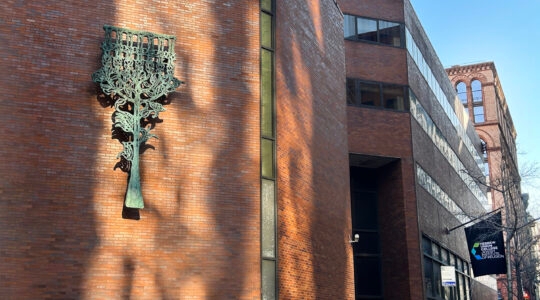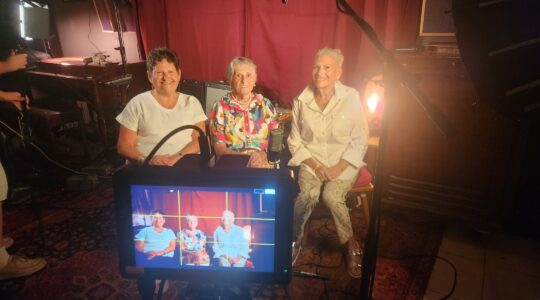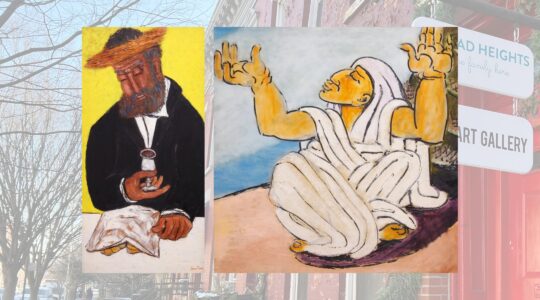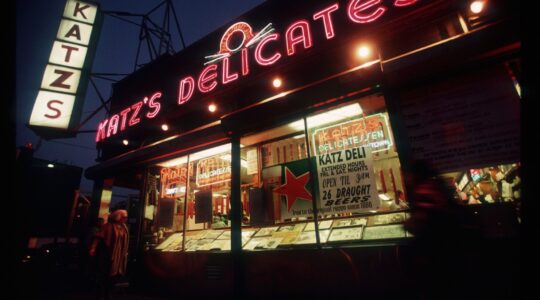A big change is afoot, one that could alter the lives of Israelis here and their role within the larger Jewish community.
Last week, a group of 40 New York-based Israeli leaders, representing over 30 Israeli-related organizations, announced the formation of Moatza Mekomit Inc., the first umbrella organization of the Israeli community in the region. Funded by the UJA-Federation of New York, Moatza (local council in Hebrew) seeks to coordinate and centralize the work of the city’s existing Israeli-affiliated groups, as well as to identify and answer the community’s unaddressed needs.
It will hold its official launch Sunday at the 92nd Street Y: a workshop where 150 leading community representatives will discuss their constituencies’ needs and how a central organization could aid in fulfilling them.
“This will be the first time somebody tries to create a central structure for the Israeli community in New York,” says Oren Heiman, Moatza’s chairman. Once it’s up and running, Moatza could be a game changer.
Heiman, 44, is the managing partner at Shiboleth LLP, the largest Israeli law firm in the U.S. He’s also one of the founders of Dor Chadash, an organization creating Israel-related social activities for Israeli and American Jews, as well as founder, supporting member, executive and/or board member of seemingly most Israeli-related organizations in New York, including the New Israel Fund, Elem, Elem-entry and American Friends of Rabin Medical Center.
The idea for Moatza began with a four-word change to the charter of the Jewish Agency for Israel (JAFI) to include “strengthening Israeli communities abroad” in its mission. In March 2012, JAFI held an introductory seminar for leaders of major Israeli communities in North America — from Toronto, Denver, Los Angeles, Miami and San Francisco — to present and compare approaches.
It quickly became clear that despite being the largest Israeli community abroad by far, estimated at over 120,000, New York’s Israeli community is one of the least cohesive. While in most places, Israeli community life gravitates around one central body — like the Israeli Leadership Council (ILC) in L.A., or the Israeli-oriented JCC in Palo Alto — the New York community had no single focal point.
This, says Heiman, is due to the diversity of Israelis here; they range from Orthodox families in Flatbush to young secular professionals in Manhattan. They differ wildly in identity, interests, ambitions and political views, and just like in Israel, they do not naturally mix. The result is a slew of uncoordinated Israeli-related organizations, each one with distinct sub-communities.
This pluralistic structure offers a measure of freedom: emigrants can choose what being an Israeli means to them, embracing certain aspects while discarding others, and still fit within a framework of a community. A central body, one with a defined leadership and ideology, would no doubt change this. But the price of having no central infrastructure to care for the community’s common needs was a bigger consideration, say Moatza organizers.
They have identified six areas of action: education; culture; business and employment; social action; collaboration with other community organizations; and Israel advocacy.
The most urgent need, they say, is education. A few local initiatives that teach Israeli heritage and culture in Hebrew already exist, but the demand still far outpaces supply. Through the funding and organization of a central body, says Heiman, more local communities can be encouraged to create their own “Israeli education” groups.
In respect to social action, Moatza plans to create a pool of Israeli volunteers that will connect with existing groups — Israeli students to visit seniors with no relatives over the holidays, for example, or volunteer groups who can be mobilized in case of an emergency.
Since many Israelis have difficulties getting hired by American firms, Moatza is also working on a network that will help unemployed Israelis to find jobs, Israeli students to find internships, and Israeli businesses to find customers.
Besides answering its constituents’ needs — to become a community in its own right, rather than a subdivision of the Jewish community — New York’s Israeli community should have its own representation, says Heiman. When media outlets quote local Jewish officials about the potential boycott of Israeli products by the Park Slope Food Co-op or about a BDS controversy at Brooklyn College, the Israeli community has no voice. But a central body will give Israelis a chance to speak for themselves.
One of the most interesting aspects of Moatza’s work would be representing the New York Israeli community to Israel.
The connection between Israel and its emigrants often remains strong: ex-pats follow the news, donate money and are generally politically active in regards to Israel — often more so than in regards to U.S. politics. And yet they have little say about what’s going on in the country they left. This could change, says Heiman, with a central group, adding that Israelis would have a voice on issues that pertain to them, such as changes in absentee ballot laws, or laws governing Israel’s returning citizens.
How Moatza’s work will affect Israelis here remains to be seen. It could open the door to them becoming a more cohesive and self-sufficient community. Or it could further isolate them, encasing them more deeply in their own community, language and customs.
Even Heiman sounds caught in an identity bind.
“There was a time when I only read The New York Times and had forsaken hummus for lox,” he admitted. “A year later I looked at myself and asked, ‘What are you, stupid? You love hummus and you enjoy reading Yediot Ahronot.’ Identity is something that keeps changing, and it’s very hard to pin down.”
Either way, Moatza could refocus Israelis more around the life and community they have here, and less around the ones they left behind.
The New York Jewish Week brings you the stories behind the headlines, keeping you connected to Jewish life in New York. Help sustain the reporting you trust by donating today.




